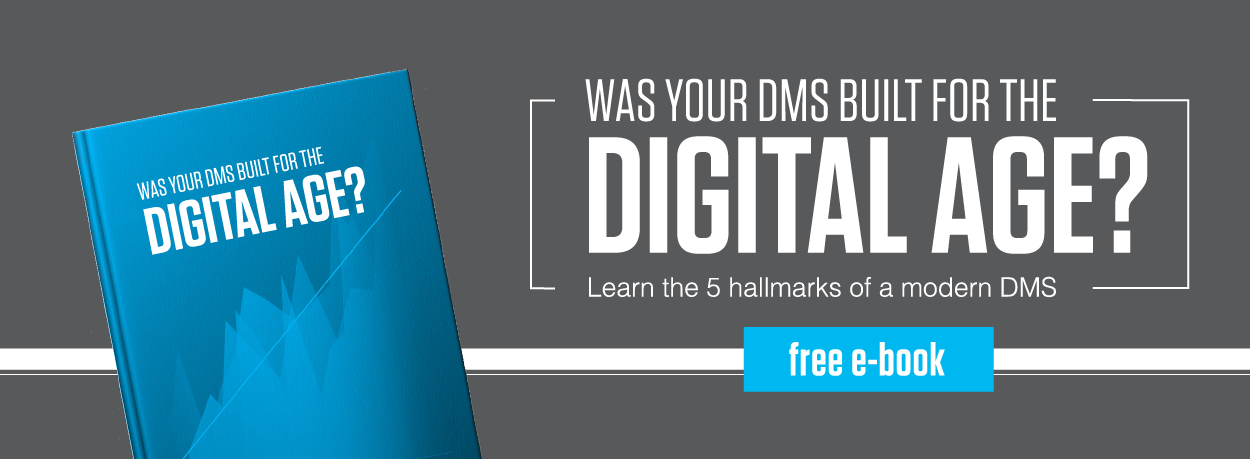The automotive industry played a major role in the modernization of American society. Ironically, the same industry that helped change the face of a country has fallen behind in recent decades when it comes to technology.
 Kirk Haselden, VP of Engineering at Dealertrack DMS
Kirk Haselden, VP of Engineering at Dealertrack DMS
Today, dealerships are impacted negatively through the use of old, outdated software and it’s a problem I’m working to solve in my current role as VP of Engineering at Dealertrack DMS Automotive. Recent innovations have the potential to restore the automotive industry to a state of economic and technological leadership. Specifically, we’re going to help dealers by modernization through integration, ease of use, and value generation.
Modernization Through Integration
Connectedness is a hallmark of modern industries, but integration between software platforms has been a consistent challenge for car dealerships. A major component of the modernization movement is the thrust to provide dealers with all of these products they need to run their businesses and to enable seamless integration between those products. When done correctly, this will provide a consistent experience across all platforms, promoting greater efficiency and enjoyment on the part of users. To accomplish this, we will use modern architecture and will host our products in the cloud. More importantly, we will find ways to rationalize our products with other third party solutions. The modern dealer management system will do everything and more that your father’s automotive DMS system once did. It will just do it in a richer, faster, and more comprehensive way through integration across all functions and workflows of the dealership.
Modernization Through Ease of Use
Of course, one of the major hurdles to modernization is fear of change. Every user experiences a software platform in their own way, so changing systems creates a different set of problems for each member of a dealership team. Fortunately, ease of use is one of the primary benefits of modern technology. Some employees will need to learn new ways of accomplishing their tasks, but they will be more efficient in the long run. While dealerships can’t avoid a long learning curve when switching technologies, simple interfaces and streamlined workflows can minimize their staff’s resistance to adoption. Once their people have overcome the learning curve, newer approaches to how work gets done ultimately results in smoother running processes and more efficient business operations.
Modernization Through Value Generation
It’s not enough to provide a better user experience. It must also generate compelling value. For many decades, automotive innovations focused on automating the same tasks that had always been done in the industry, using technology to replicate manual processes like accounting, invoicing, and reports. Today, Cox Automotive is driving a new kind of innovation that goes beyond automation of basic dealership functionality. These innovations are creating new value by enabling dealerships to perform functions that would never be possible through manual processes. New ways of doing things like analytics, big data, data mining, smart prediction, and exposure attribution are transforming the scope of what’s possible within the dealership.
While the automotive industry played a significant role in the modernization of American society, it has since fallen behind in its adoption and application of technology. Exciting new technologies now have the potential to reserve this trend and restore the industry to a state of cutting edge innovation. Product features that promote integration, ease of use, and value generation are rapidly modernizing the automotive industry, which will provide immense benefit to both dealerships and customers. When you look at the epicenter of that revolution, you’ll find Cox Automotive.
